September 28, 2023 09:15 pm | Updated September 29, 2023 02:28 am IST – New Delhi
File photo of M.S. Swaminathan.
| Photo Credit: Reuters
Indian agriculture scientists and policymakers remember M.S. Swaminathan as someone who walked ahead of time not just as a scientist, researcher and academic but also as a visionary administrator. The community believes that developing high yielding Basmati rice varieties, innovatively using the technology of mutation for various crops, application of genetics for increasing production and food security and launching programmes such as “lab to land” were his major contributions to the country’s agriculture sector.
M.S. Swaminathan (1925-2023): Life in pictures

Dr. Mankombu Sambasivan Swaminathan, or M.S. Swaminathan, is known as the “Father of the Green Revolution in India”, for his leadership and success in introducing and further developing high-yielding varieties of wheat and rice in India.
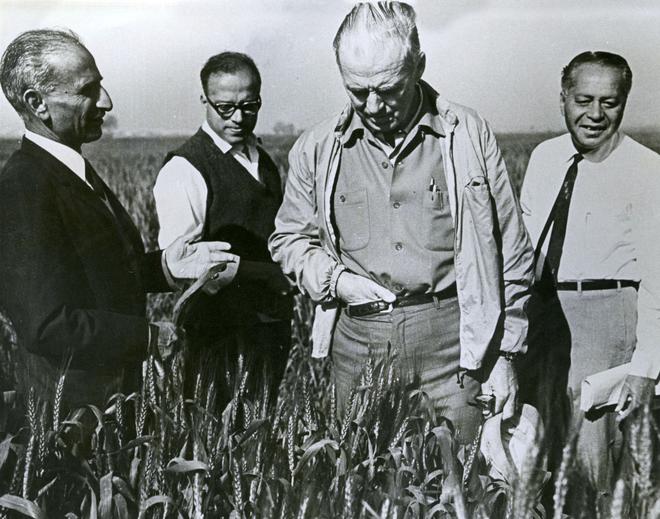
In this 1965 photo Norman Borlaug (third from left) selects strains of high-yielding wheat, along with S.P. Kohli, M.S. Swaminathan (second from left) and V.S. Mathur, in New Delhi in 1965. The Green Revolution strategy kept famines at bay and partly made up for the absence of land reforms by encouraging direct cultivation by large landholders.
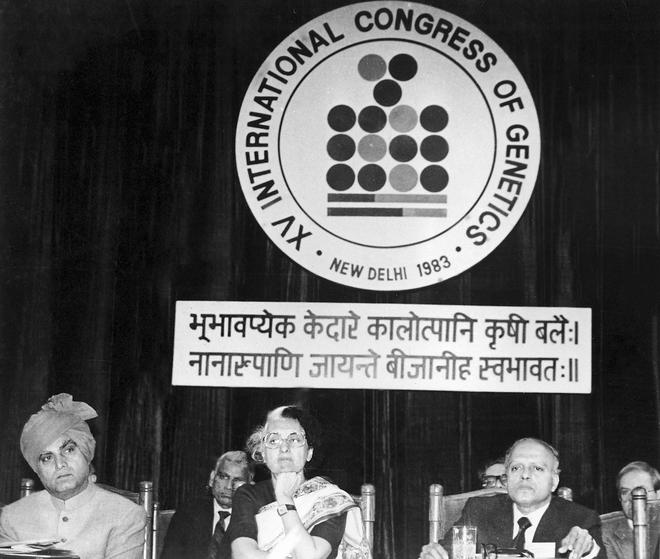
Then Union Agriculture Minister Rao Birender Singh, then Prime MInister Indira Gandhi, Chairman of the National Organising Committee Dr. M.S. Swaminathan and President of the World Genetics Congress are seen during the 10th World Genetics Congress at New Delhi on December 12, 1983.
M.S. Swaminathan at the Wheat Breeding Research Station of IARI in Wellington, on December 31, 2013. Dr. Swaminathan was an alumnus of The Indian Agricultural Research Institute.
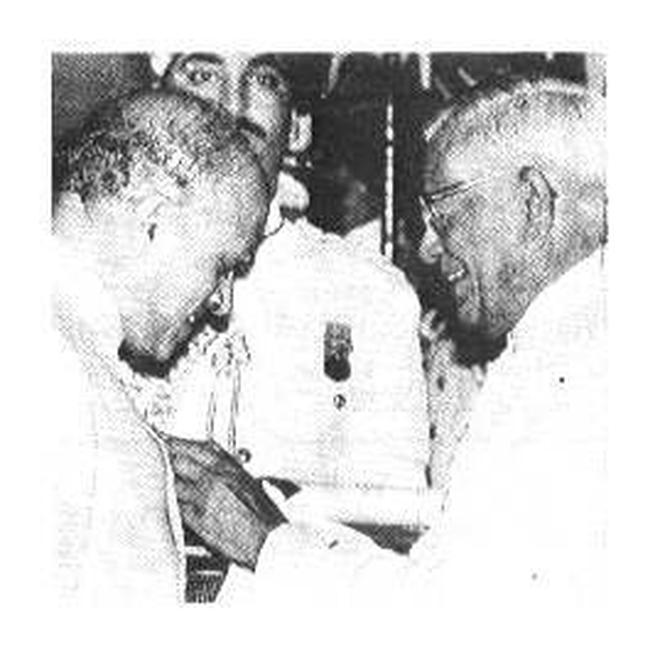
President R. Venkataraman presents the Padma Bhushan award to Dr. M.S. at an investiture ceremony in the Rashtrapati Bhavan in New Delhi in 1989.
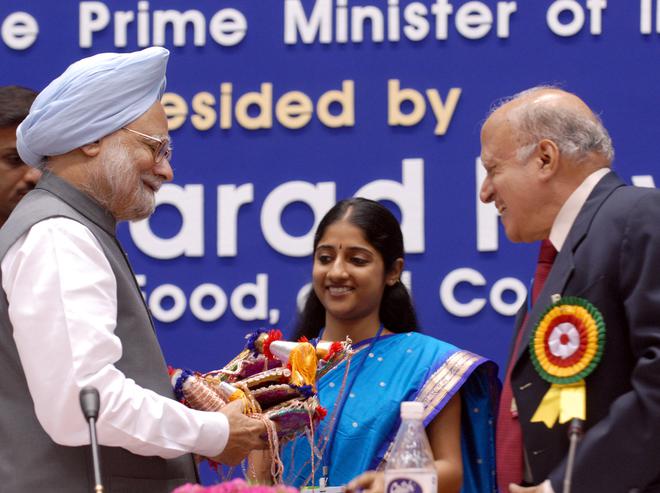
Dr. Swaminathan presents a garland of rice grains to the then Prime Minister Dr. Manmohan Singh at the International Rice Congress at Vigyan Bhavan in New Delhi on October 9, 2006.
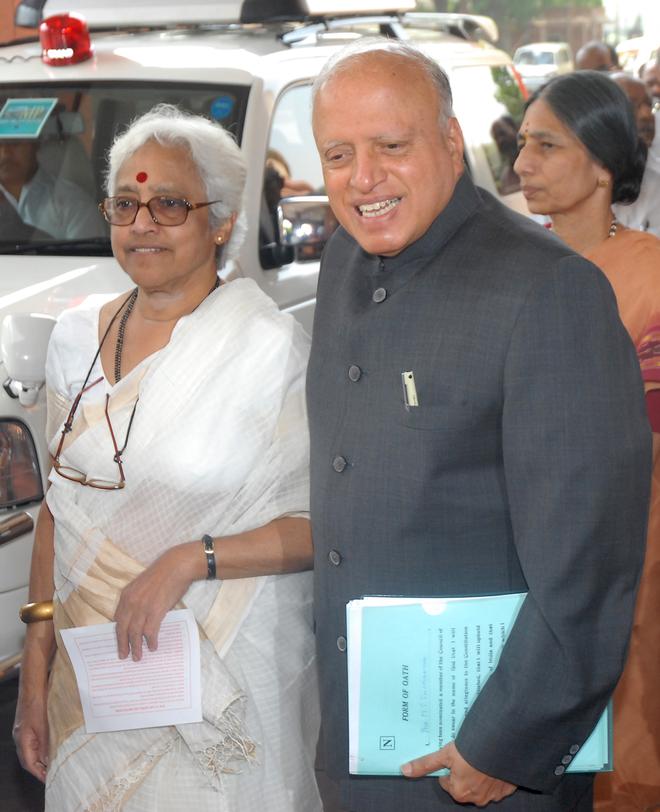
Dr. Swaminathan arrives with his wife Mina Swaminathan in the Parliament. He was a Rajya Sabha member from 2007 to 2013.
The then Prime Minister Atal Behari Vajpayee presents the Millennium Award to Dr. Swaminathan at the 88th Session of the Indian Science Congress in New Delhi.
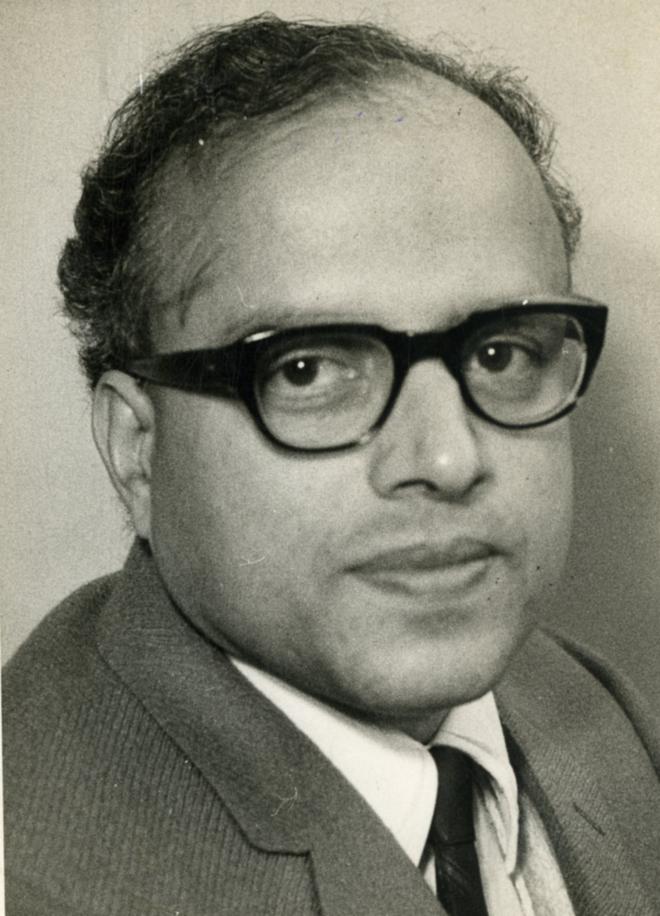
M.S. Swaminathan, when he took over as Director General, ICAR, on January 14, 1972.
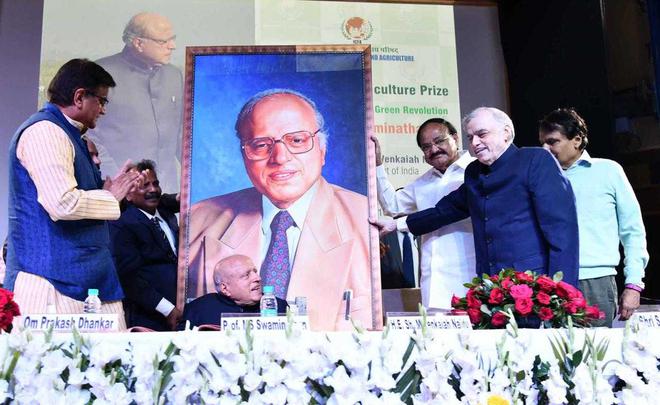
Dr. Swaminathan receives World Agriculture Prize from Vice President M Venkaiah Naidu at the 11th Global Agriculture Leadership Summit in New Delhi.
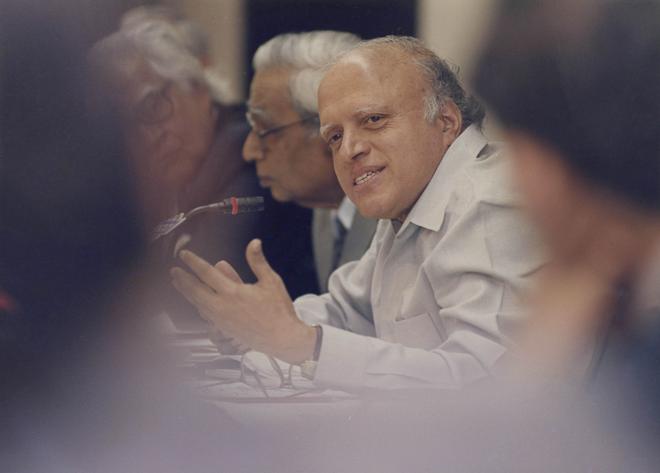
M.S. Swaminathan addressing a FICCI meet on ‘Agriculture policy in the first 10 years of the next millennium’ in New Delhi on November 12, 1999.
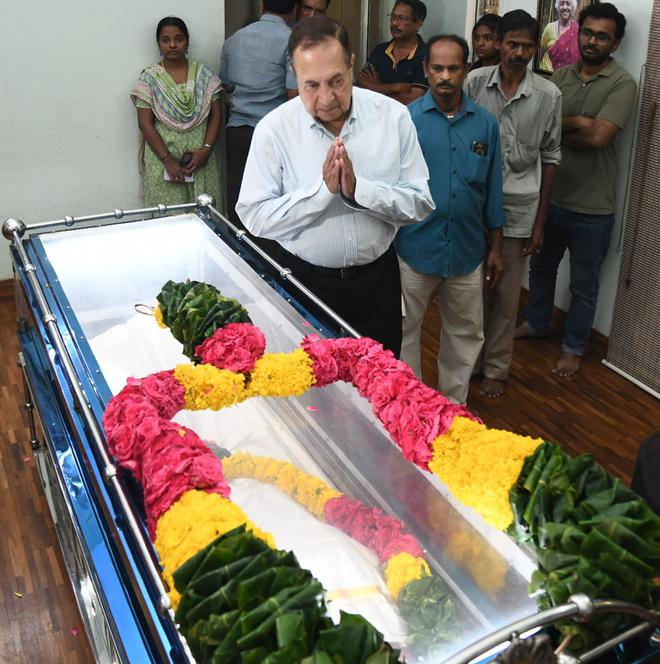
The Hindu Group Publishing Private Ltd. Director N. Ram pays his respects before the mortal remains of Swaminathan, in Chennai, Tamil Nadu on September 28, 2023.
1/3
Former Director-General of the Indian Council of Agricultural Research (ICAR) Trilochan Mohapatra remembers Dr. Swaminathan as an encouraging teacher and a strong administrator. “He was our professor at the Indian Agricultural Research Institute. He minced no words to encourage us. When we successfully organised a congregation of scientists, he wrote a letter to then Director of IARI congratulating us as ‘students who take pride in perfection’. I had met him last for his birthday in August. In all our meetings, he would passionately talk about research and finding in the field of agriculture, which was so inspiring,” Prof. Mohapatra said.
Pet projects
Nutritional quality through mutation of crops, bio fortification, funding States to promote agriculture, precision farming, advocacy through National Academy of Agricultural Sciences and establishment of a Central Institute for Women in Agriculture were all his pet projects, Prof. Mohapatra said. “Political class always valued his suggestions and recommendations,” he added.
| Video Credit: B. Velankanni Raj
Prof. Mohapatra remembers insightful papers by Dr. Swaminathan on his doctoral research work in the science of potato in Nature magazine is still considered as seminal. “He joined the Central Rice Research Institute in Cuttack when he came back to India after his research. He always had a special consideration for this Institute,” Prof. Mohapatra said. “His stamp is visible in ICAR, IARI and all other national agriculture science institutions,” he added.
Chairman of the Punjab Farmers Commission and eminent agro-economist Sukhpal Singh said it was under Dr. Swaminathan’s leadership that efforts were launched at the International Rice Research Institute (IRRI) to cultivate rice with C4 carbon fixation capabilities, enabling improved photosynthesis and water utilisation. “Dr. Swaminathan also contributed to developing the world’s first high-yielding basmati rice,” Prof. Singh said, adding that his incomparable contribution in improving agricultural production by developing high yielding crop varieties and modern technologies would always be remembered by the country, especially by the farmers of Punjab. “A true visionary and pioneer in agriculture and sustainable development,” Prof. Singh said.
IARI Director A.K. Singh said in a statement that in passing away of Dr. Swaminathan ends an era of agricultural research, education and extension that was full of disruptive innovation. “If God appears to poor and hungry in form of bread as said by Mahatma Gandhi, that God is Dr. Swaminathan who should be worshipped by every citizen while taking daily meals,” Prof. Singh said.








